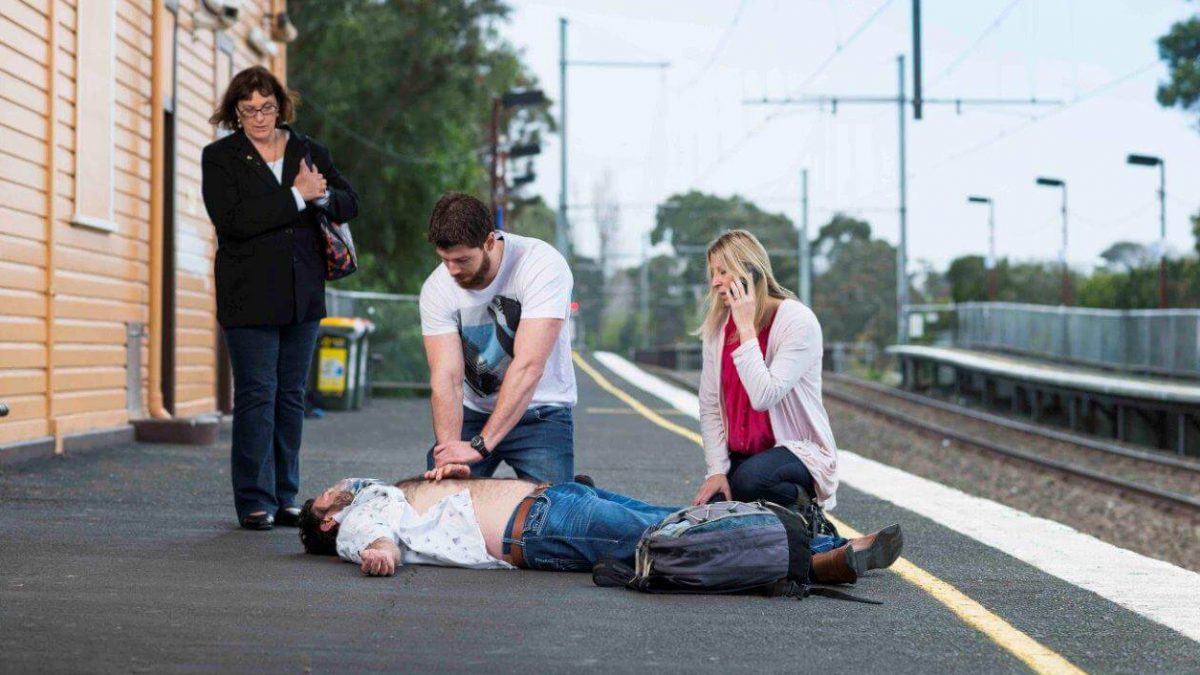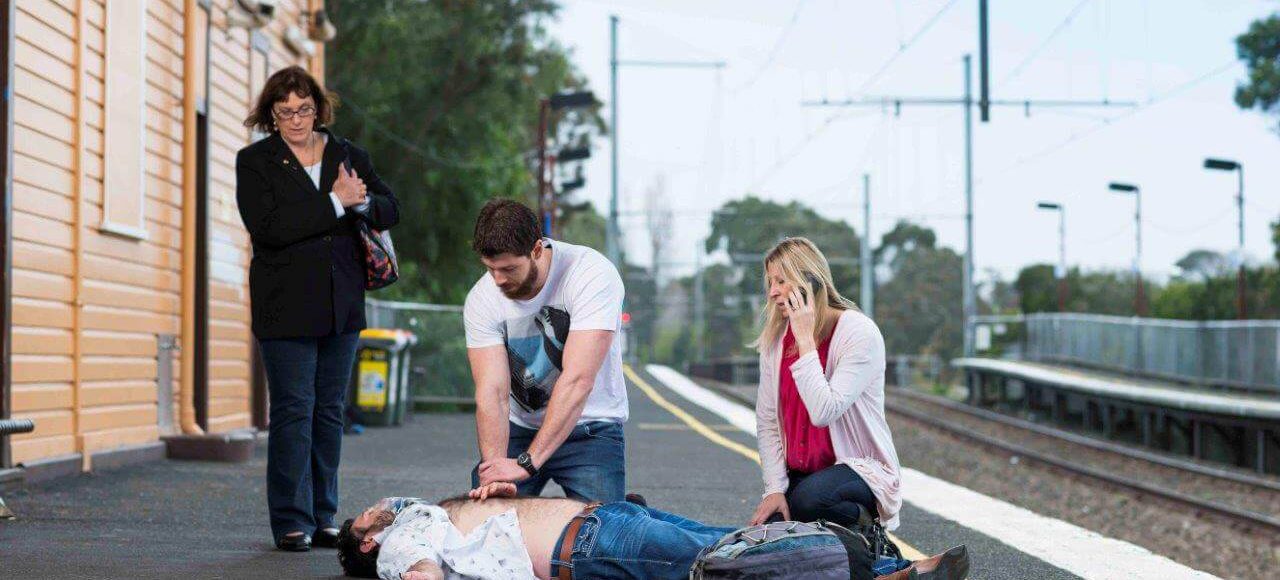What is the chain of survival first aid and why first aid in the first five minutes of a cardiac arrest is crucial
The main reason employers provide their employees with first aid courses is so they can give life-saving care to someone in a workplace emergency, whilst an ambulance is on its way. For some non life-threatening emergencies, the knowledge and skills in undertaking a first aid certificated course may come in handy to keep a patient calm, help to move them into a certain position or apply pressure to a wound with first aid supplies.

But other cases involve more than a first aid kit: administering vital first aid in those minutes before paramedics arrive can sometimes mean the difference between life and death. It is well researched that the chances of survival after a cardiac arrest drop 10% very minute that passes without defibrillation.
In fact, less than 1 in 10 out-of-hospital cardiac arrests result in survival – predominantly because no one was able to provide the necessary first aid.
Well-trained first-aiders in your business can play a crucial role in administering CPR (Cardiopulmonary Resuscitation) and defibrillation before emergency services arrive – and significantly increase chances of survival.
How can first-aiders help in a cardiac arrest?
With four Australians dying from cardiac arrest outside of hospital every 60 minutes, it is imperative that all workplaces are well-prepared to respond immediately – with expert and recent CPR training and defibrillation knowledge at hand.
CPR is a first aid technique that traditionally combines breathing assistance with chest compressions – keeping the forward movement of blood flow to the vital organs until paramedics can provide more advanced cardiac life support.
“The aim of CPR is to maintain temporarily a critical amount of circulation to the heart and the brain,” says the Australian Resuscitation Council (ARC), where Premium Health’s CEO Phillipa Wilson is the current Vic Branch Secretary.
The ARC also outlines the steps involved in helping someone who has suffered a cardiac arrest, in what is known as “the Chain of Survival”.
What is the Chain of Survival?
To help improve first aid understanding and outcomes, the ARC outlines steps in the CPR journey that all first-aiders can implement:
- Early Recognition of Collapse/Emergency: To potentially avoid a cardiac emergency altogether, learning to recognise the early signs of someone who is at risk of cardiac arrest and calling for help is imperative.
- Early Initiation of CPR: Immediate and effective CPR is imperative to increase survival outcomes in a sudden cardiac arrest and buy time until defibrillation can be administered.
- Early Defibrillation: Survival rates drop up to 10% every minute that goes by without defibrillation. But outcomes can be improved (49-75%) if CPR and defibrillation are initiated within the first 3-5 minutes after a cardiac arrest.
- Early Advanced Life Support and Post Resuscitation Care: If emergency services are still on their way after defibrillation has been administered, effective post resuscitation care is imperative to keeping the heart and brain functioning.
Here at Premium Health, we pride ourselves in only having health professionals with real experience and training – such as paramedics and nurses – as our trainers. They are best positioned to pass on valuable expertise to your employees and help prepare them to respond effectively in an emergency – especially in those crucial early minutes.
Premium Health is one of only 13 members on the First Aid Industry Reference Committee, which determines first aid training across Australia. This places us ahead of the industry and in the driving seat of improved training and outcomes for cardiac arrest patients in workplaces across our country.
Premium Health is Australia’s leading authority in first aid, mental health and specialised scenario based training. We offer a variety of first aid related courses and training, including mental health first aid training, as well as specialised first aid training, hands-on CPR and much more – at your workplace and public venues across Australia.
